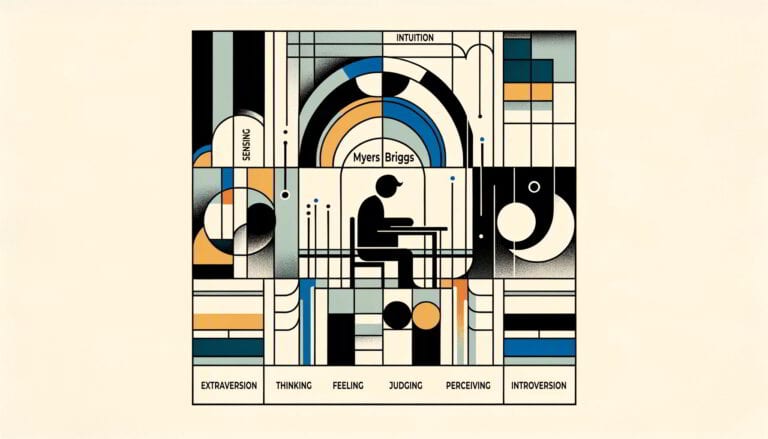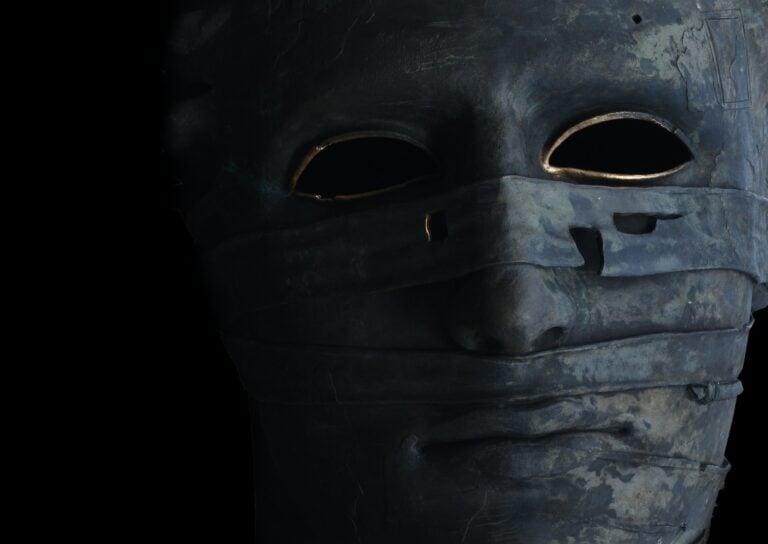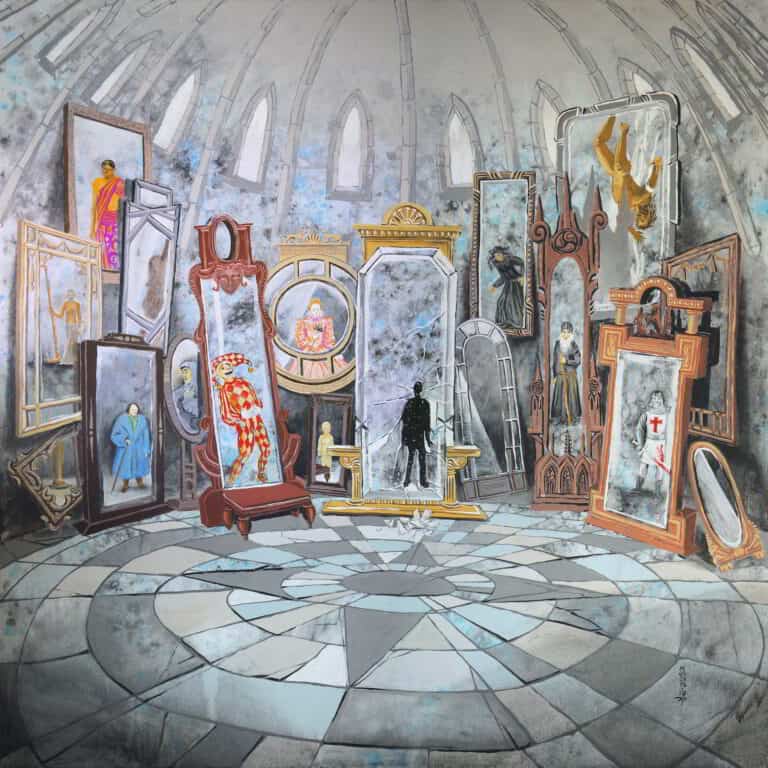Unmasking Personality: Correlating Enneagram Types with The Myers-Briggs Personality Type Indicator
Unleash the power of understanding by exploring the correlation between the Enneagram and The Myers-Briggs Personality Type Indicator. Unlock the mystery behind these two intriguing personality systems.
Introduction
In the labyrinth of human behavior and personality, two powerful tools stand tall: the Enneagram and the Myers-Briggs Type Indicator (MBTI). Each offers a unique lens to view the intricacies of human nature, helping us understand ourselves and others better. But what happens when we cross-reference these two profound systems? Does it bring us closer to the holy grail of personality comprehension?

Before we dive into the deep end, it’s vital to remember that while both the Enneagram and MBTI are mechanisms to grasp personality, they approach it from distinct angles, grounded in different theories. Hence, a perfect one-to-one correlation between them doesn’t exist. However, it’s not to say that they operate in isolated silos. Certain patterns and tendencies often emerge when one treads the path of relating these two systems.
Now, are you ready to embark on this fascinating journey of decoding personality?
Let’s start with the first of our Enneagram types: The Perfectionist.
The Perfectionist: Enneagram 1 and MBTI
With an unyielding desire for integrity and an ever-vigilant inner critic, the Perfectionist or Enneagram 1, often finds companionship in ISTJ and INTJ types in the MBTI system. The systematic and organized nature of these MBTI types syncs harmoniously with the principle-driven and rational mind of the Perfectionist.
The perfectionist’s quest for constant improvement often resonates with the ISTJ’s and INTJ’s commitment to bringing visions to reality in a structured manner.
But it doesn’t mean that other MBTI types cannot have a Perfectionist streak. After all, the desire to reform and the pursuit of an ideal world can find a home in any personality type.
The Helper: Enneagram 2 and MBTI
Next up on our Enneagram list is the Helper, or Enneagram 2, often seen mirroring ESFJ and ENFJ types from the MBTI inventory.
The Helper’s external focus on assisting others and their intuitive people skills find a natural ally in the ESFJ and ENFJ types. The latter are known for their empathetic nature and the ability to connect with others on an emotional level, much like the Enneagram 2.
However, the want to be loved and valued is a universal human trait. So, any type that is outward-oriented and has a strong desire to be acknowledged can resonate with the Helper’s attributes.
The Achiever: Enneagram 3 and MBTI
The Achiever, or Enneagram 3, is the success-driven dynamo, often seen in conjunction with ENTJ and ESTJ types of the MBTI system. The ambition and efficiency of the Achiever find a natural partner in the determination and the action-oriented mindset of ENTJs and ESTJs.
These types are known for their logical thinking and clear-cut communication, aligning well with the goal-focused attitude of an Achiever.
But success and image consciousness aren’t confined to specific MBTI types. Any personality that pursues success and cares deeply about their image can display characteristics of the Achiever.
The Individualist: Enneagram 4 and MBTI
Stepping into the realm of the Individualist or Enneagram 4, we often find an alignment with INFP and ISFP types of the MBTI system.
These types share the Individualist’s inclination towards introspection and emotional richness. The INFP and ISFP types, like Fours, value authenticity and strive to express their individuality.
But individuality and emotional honesty are universal human traits, not limited to INFP and ISFP types. Thus, any personality type that seeks unique identity and is comfortable expressing their emotions can embody the Individualist.
The Investigator: Enneagram 5 and MBTI
When we investigate the Investigator or Enneagram 5, we frequently discover a correlation with INTJ and INTP types from the MBTI spectrum.
These types, like Fives, are analytical, insightful, and often detached observers of the world. INTJs and INTPs are independent thinkers who seek understanding and knowledge, mirroring the core desires of an Investigator.
However, the thirst for knowledge and the pursuit of autonomy can be found in all personality types. Therefore, any type that values knowledge and independence can demonstrate the traits of the Investigator.
The Loyalist: Enneagram 6 and MBTI
Next, we meet the Loyalist or Enneagram 6, which often aligns with ISFJ and ISTJ types in the MBTI system.
The Loyalist’s need for security and reliability finds common ground with these MBTI types, known for their dutifulness and meticulous attention to detail.
But the desire for security and the trait of reliability are not confined to ISFJs and ISTJs. Any personality type that seeks security and values loyalty can exhibit the characteristics of the Loyalist.
The Enthusiast: Enneagram 7 and MBTI
The Enthusiast, or Enneagram 7, usually resonates with ENFP and ESFP types from the MBTI system. These types, like Sevens, are energetic, optimistic, and crave a variety of experiences.
The ENFPs and ESFPs are spontaneous, flexible, and highly adaptable, much like the Enthusiast.
However, enthusiasm and a zest for life are universal human traits. Any personality type that is future-focused and enjoys a plethora of experiences can manifest traits of the Enthusiast.
The Challenger: Enneagram 8 and MBTI
The Challenger or Enneagram 8 often pairs up with ENTJ and ESTP types from the MBTI model.
These types, like Eights, are assertive, confrontational, and strive for control over their environment. ENTJs and ESTPs are known for their decisive nature and their ability to take charge, aligning with the Challenger’s core traits.
But the desire to protect oneself and the confidence to take on challenges can be found in all personality types. Any type that exudes self-confidence and has a protective streak can show the traits of the Challenger.
The Peacemaker: Enneagram 9 and MBTI
Lastly, we come to the Peacemaker or Enneagram 9, which often correlates with ISFP and INFP types in the MBTI system.
These types share the Peacemaker’s desire for inner and external peace and harmony. The ISFPs and INFPs are known for their calm demeanor, their ability to see the good in others, and their desire for a harmonious existence, much like the Peacemaker.
But the desire for peace and the tendency to go with the flow can be found across the MBTI spectrum. Thus, any personality type that values tranquility and strives to maintain harmony can manifest traits of the Peacemaker.
Conclusion: The Harmony of Personality Systems
Crisscrossing the trails of Enneagram and the Myers-Briggs Type Indicator has indeed been a fascinating journey, hasn’t it? We’ve seen how these two remarkable systems can intersect, shedding light on the complexity of human personality from various angles.
While we’ve explored some common correlations, it’s essential to remember that these are not hard and fast rules. Each of us is a unique blend of traits and tendencies, and these personality systems are tools to aid understanding, not boxes to confine us. As you continue your journey of self-discovery, may these insights serve as guiding lights.
Understanding yourself and others is a lifelong journey. Stay curious, stay open, and remember, the journey itself is the destination. So, why not subscribe to our exclusive email group to continue this exploration and stay updated with insightful content? After all, the world of personality decoding has much more in store for you.
FAQs
What is the Enneagram?
Answer: The Enneagram is a personality system that categorizes human personality into nine distinct types. It helps individuals understand their behavior patterns, motivations, and fears.
How does the Myers-Briggs Type Indicator differ from the Enneagram?
Answer: The Myers-Briggs Type Indicator (MBTI) focuses on the cognitive processes that influence how people perceive the world and make decisions. In contrast, the Enneagram delves into core fears, desires, and motivations.
Can my Enneagram type and MBTI type be different?
Answer: Absolutely! Your Enneagram type and MBTI type can indeed be different. These systems explore different aspects of your personality and are meant to complement each other rather than overlap entirely.
Keywords: Enneagram, Myers-Briggs Type Indicator, MBTI, Personality, Personality Types, Correlation, Self-Discovery, Enneagram Types, MBTI Types, Personal Growth.






